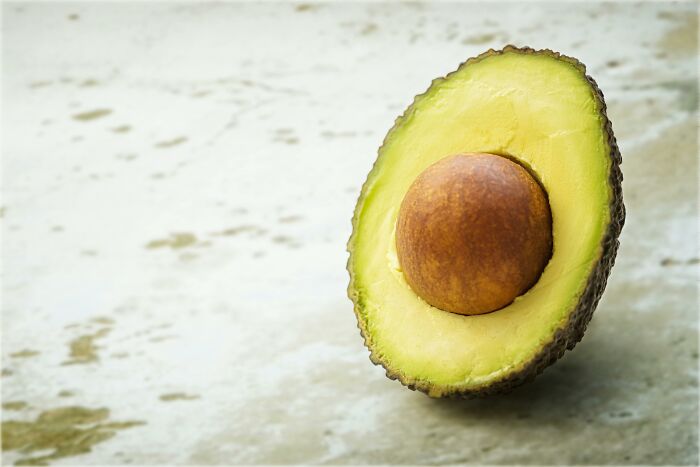Answering recent questions from reporters about the upcoming tariffs on goods from Canada, Mexico, China and, eventually, other countries, including the European Union, President Donald Trump, in particular, said: “Tariffs do not cause inflation. They cause success.”
Well, maybe this time it will be different, but as a former university professor of economics, I want to sincerely doubt that. At least, all economic history shows quite the opposite – as a result of trade wars, the poor usually suffer. Simply because the prices of goods go up. For example, today we can already prepare for price hikes on these 12 things.
#1 Maple Syrup
The US is the world’s second-largest exporter of maple syrup, but it’s almost nothing compared to Canada’s export volumes (83.2% of Canadian exports in 2023 versus 6.5% of US exports). For example, in 2022, the US imported $293M in maple syrup, and almost 100% came from Canadian trading partners. It’s unrealistic to completely replace Canadian maple syrup and sugar – at least in the coming years.

#2 Avocados
It’s quite simple – Mexico is the world’s largest avocado exporter ($3.25B in 2022), while the US is the largest importer ($3.15B in the same year). Options for replacing Mexican avocados? Peru, the Netherlands, Spain and Chile. Two of these exporters are part of the European Union, which also has upcoming tariffs against it.

#3 Crude Oil And Gasoline
Canada and Mexico are the top sources of U.S. crude imports, which together account for about a quarter of the oil that U.S. refiners process into fuels and heating oil. Moreover, replacing Canadian oil will be very problematic, because each type of oil has its own chemical specifics, and American refineries have been “sharpened” for years specifically for Canadian crude oil. The possible result? Higher gasoline prices for American consumers.

After the introduction of tariffs on companies from Canada, Mexico and China, the US presidential administration specifically stated that all this will be paid for by companies from these countries, and not ordinary Americans. It certainly sounds encouraging – but in practice, the burden of such tariffs is usually distributed between producers from another country, the local importer – and the end consumer, for whom the price inevitably increases.
#4 Cherry Tomatoes
In the global market, the three largest exporters of cherry tomatoes are Turkey, the Netherlands and Mexico. Now guess which of these three countries is the largest supplier to the American market? That’s right, Mexico with their 3,493 shipments!

#5 Cars And Auto Parts
The good news is that the American auto industry is still powerful and efficient. The bad news is that for decades, supply chains have been set up so that both finished cars and parts can easily cross the borders with Mexico and Canada.
Many of the factories that make critical parts — like the engines for Ford F-series pickups and the legendary Mustang sports coupe — are located in Canada. As a result, in 2023, $20B in auto parts came from Canada, and another $78B came from Mexico.

#6 Tequila
Everything is interconnected with alcohol – for example, in 2023, American companies imported $4.6B worth of tequila, as well as $537M worth of whiskey from Canada. Increasing tariffs will inevitably hit alcohol prices. Now name the three largest importers of American alcohol. The European Union, Canada and Mexico! That is, tariffs will work in the opposite direction.

One of Donald Trump’s idols in his second presidential term is William McKinley, the 25th President of the United States, who actively introduced tariffs on foreign goods, and indeed did a great service to American industry. However, McKinley lived at the turn of the 19th and 20th centuries, when the economy of both the United States and the world was structured… well, let’s say, a little differently.
For example, almost everything that was consumed in the United States was produced domestically. Thus, back then, at the beginning of the 20th century, the introduction of the so-called “protectionist” economic policy was entirely justified from the point of view of the growth of the American economy. But now it’s 2025, not 1901, and the world economy does not work that way.
#7 Smartphones
And here China, the world’s largest manufacturer of smartphones and components, comes into play. And even if supply chains are reconfigured to exclude Chinese factories, it will actually take years – and in the meantime, smartphones will only become more expensive for the end consumer.

#8 Steel And Construction Materials
About a quarter of all steel imported by American companies comes from Canada. The price increase caused by the tariffs will automatically raise the price in all industries that use steel. Automotive, heavy machinery, construction… Yes, the cost of new homes will go up, too.

#9 Beer
If you like Mexican beer like Corona and Modelo, brace yourself for the inevitable price hike after the tariffs are put in place! The $5.69 billion in Mexican beer imported from Mexico to the U.S. in 2023 is another proof of that.

In modern economies, countries often specialize in the production of a particular product, and import everything else from other countries simply because it’s more economically profitable than producing it at home. For example, if an American car company has the opportunity to import some spare parts from other countries, where their production will simply be cheaper – they will do so.
If there is an opportunity to move production to a country with cheaper labor, more favorable taxes and, let’s be cynical but honest – lesser requirements for the environmental friendliness of production – the company will do so, simply because it will be more profitable. And profit has always been the main motive for economic development.
#10 Ledgehammers
In 2023, China was by far the largest producer of sledgehammers in the world, but Chinese sledgehammers already face a 25% tariff when sold in the U.S. Further tariffs will only increase their cost to American consumers.

#11 Electronics And Home Appliances
Yes, the US is the world’s second-largest exporter of electronics and home appliances, according to 2024 data. But there are two caveats. First, China is the leader in this ranking, and second, potential counter-tariffs from Canada, Mexico, the EU and China will raise prices on American products too.

As a result, a modern American car factory assembles American cars from parts made in Mexico, Canada and Latin America, on machines brought from China or Europe, and then fills them with gasoline that American refineries recently produced from Canadian crude oil. Quoting Childish Gambino, “this is America!”
Of course, American companies can, to their own detriment and their economic interests, start building factories in their homeland. But this will take time, a lot of time – and the prices for the final products will be significantly higher than with the classic, global distribution of labor. And when prices rise, and rise steadily and for a long time – this, it must be said, is nothing but inflation.
#12 Tonka Trucks
Tonka Trucks are one of the symbols of childhood, perhaps both yours and your children’s. Today, a significant portion of these toys are made in China and Mexico.

According to trade experts, tariffs can significantly “spur” inflation in the United States – for example, they can cost American consumers an average of $835 per person. And, of course, the main burden will fall on low-income consumers and households.
Many imported goods simply do not have American alternatives. Of course, over time, these alternatives can be created – but do ordinary Americans actually have this time?
from Bored Panda https://ift.tt/r7b0p4w
via IFTTT source site : boredpanda